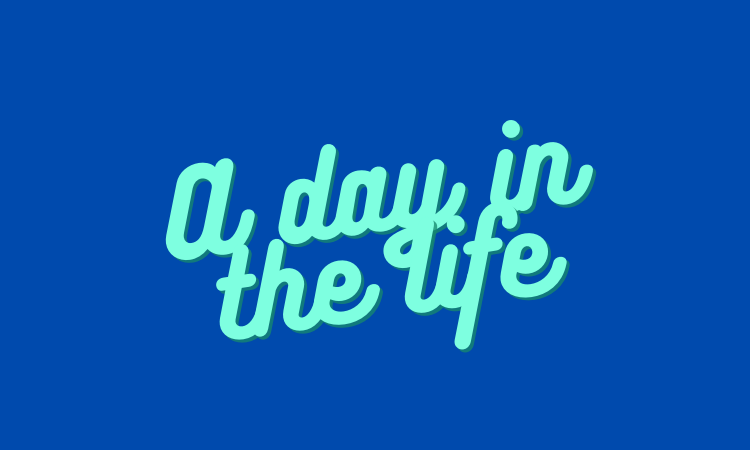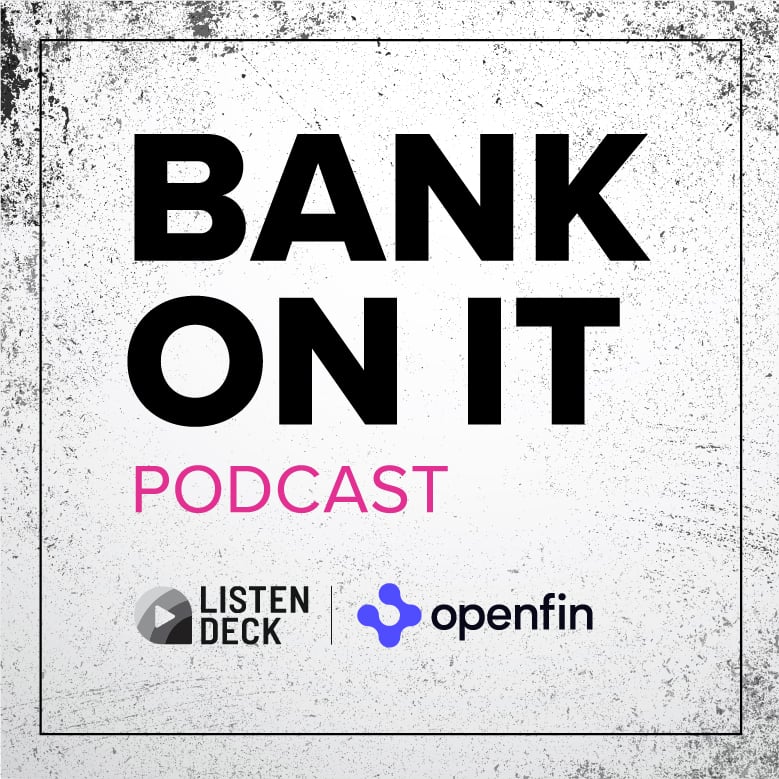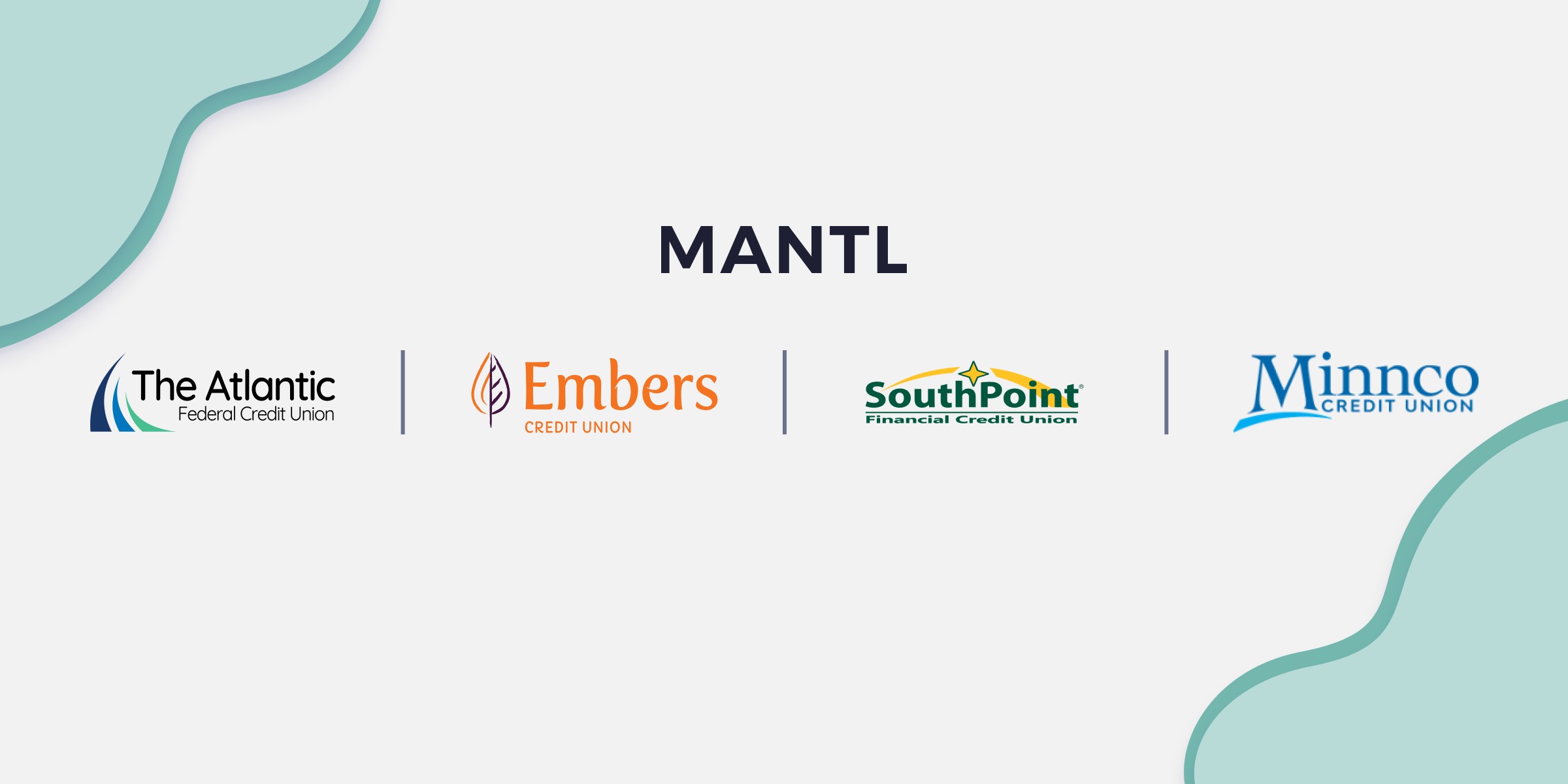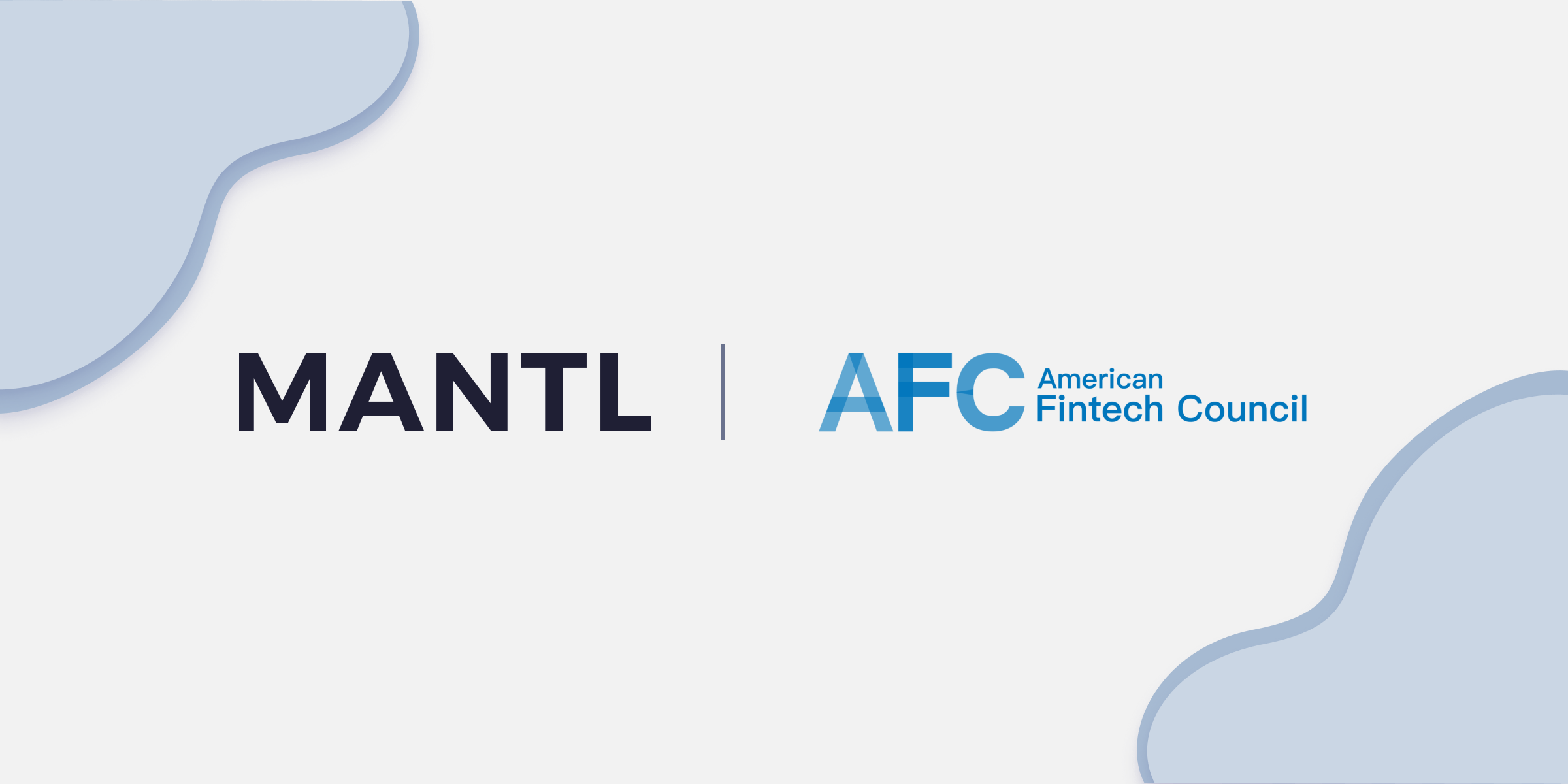Read the original article here.
With the rise of digital banking, we’re seeing plenty of challenger banks step onto the scene, promising better digital banking experiences and personalized services.
But there’s another side to the story. MANTL, a SaaS company, provides digital banking technology for credit unions and community banks.
The founders of the company started out with a challenger-focused mission but quickly pivoted when they saw the opportunity nestled in smaller traditional financial institutions that were looking to modernize their own tech.
“We realized that there was a bigger opportunity for us to have the impact that we want to have in the financial ecosystem by actually just helping existing community banks and credit unions modernize,” said Benjamin Conant, co-founder and CTO of MANTL.
MANTL, which was founded in 2016, has experienced some serious growth recently. In April last year, the company’s deposit volume grew by 705 percent. Fast-forward to April this year, and MANTL announced it had raised $40 million in funding, bringing its total funding to $60.7 million.
And as MANTL continues to grow and develop, so do the roles of each of the company’s founders.
As CTO of MANTL, Conant started out as the sole coder on deck. Now, his job description includes guiding the product and engineering teams, brainstorming and unraveling technical concepts and staying on top of meetings.
“I’m at a point where a lot of what I do on the day to day is technical visions at a high to medium level and then lay these concepts out clearly enough so that engineers can get started,” said Conant. “My role is not to provide a spec that says absolutely everything, but to give our engineering team, product team, and design team enough to get started.”
Here’s a day in Benjamin Conant’s life:
One giant dog, one ice cold shower, zero alarm clocks
I have never seen eye to eye with my own alarm clock. So instead of setting an alarm, I’ll wake up naturally sometime between 7 and 8 a.m.
And typically, that means waking up to my giant dog, Cooper.
My fiancé Maria is a doctor, so she’s out the door at six or seven, doing surgery, or managing some sort of other anesthesia tasks. And Cooper likes to take her spot.
In general, I like to take mornings really slow. I think it’s a really good way for me to do unstructured thinking. So as MANTL’s developed, I’ve really tried to be like, ‘okay, let’s just not do the normal thing. Let’s slow mornings down.’
So from then on, it’s really about going about my morning mindfully and slowly, and moving myself into the workday.
I’ve developed a habit of taking ice cold showers in the morning. And I really like doing that. It makes me feel energized and alert.
I’ll also listen to music in the shower. And what I’ll listen to varies pretty widely. Right now it’s this genre called Deep House, which is actually way more musically interesting than one might think, based on the name.
While I’m showering, I’m typically processing stuff that my brain was moving around at night — something that felt like a problem that I couldn’t sink my teeth into yesterday.
10 minutes of meditation, the perfect cup of coffee (literally), a calendar that doesn’t bite
After my shower, I’ll use an app like Calm or Headspace to meditate — typically for 10 to 12 minutes — just to clear my mind, and center myself.
After the meditation, I’ll make coffee.
I have a pretty specific number of grams of coffee I like to hit everyday, and I bought a scale that helps me measure that. So it’s 7.75 grams per cup, and two cups altogether.
I experimented a lot, and I like that ratio. So my coffee is the same every morning, which is important and nice for me.
And then basically, I’ll just sit, drink my coffee and set up my to-do list for the day. And the to-do list combines work and personal stuff on it, so that I have everything in one place.
That way I can look at my calendar, and say, okay, what can I actually commit to getting done today?
So I’ll groom that list, I’ll make a commitment. And then I’m done with planning for my day.
And from there, I’ll finish my coffee, read Hacker News, Crunchbase, and other industry blogs and articles to see if there’s anything particularly interesting going on that day, or if there’s anything just random that I can spiral into for 10 minutes and learn something new.
From there, I’ll head into my office. And that’s when the workday officially starts. Usually that’s around 10. It can be earlier, it can be later, depending on when I wake up.
Blocking out focus time, meetings to meetings, ending at 7 on the dot
I’m at a point where I have a reasonable amount of focus time to work on things that are meaningful.
So I might be writing a piece of documentation that teams can digest and sort of cast a vision for. I also might be involved in any number of types of technical and product development meetings that we have at MANTL.
What MANTL is trying to do is solve the domain of banking.
And banking is really, really complicated. So product managers, designers, engineers — we all have to work very efficiently together.
One thing we’ve done is adopt a type of meeting called ‘knowledge crunching’, which is when we take a problem that we have been working on recently and tackle it.
A question we’ve been exploring, for example, is how to model sole proprietorships. If someone owns a business, and it’s a sole proprietorship — only they own the business — there are a lot of nuances and things involved. Does the business really exist, or is it actually just a relationship between the person and a special account that they own and only use for the ‘businesses’ operations?
So I might be involved in a conversation with engineers, designers and product managers about some nuances of managing sole proprietorships. And together we’ll try to pull out what MANTL’s language is for talking about this, and the MANTL system handles this, and how is that going to work for all banks, because each bank thinks about it a little bit differently.
During the day, I’ll also meet with Nathaniel, our CEO, Raj, our COO, Ian, our VP of engineering, and Colleen, our VP of product. If I’m doing status meetings or management collaboration, it’s typically with those people.
Typically, if I have IC work — individual contributor work — that I have to do, I will try to get that done in the first two hours of the day. I’ll also try to push meetings back to the afternoon. That does not always happen.
For the most part, I live based on my calendar, rather than ‘this is what my morning looks like, this is what my afternoon looks like.’ We actually use an app called Clockwise, which integrates with Google Calendar. So that helps block out focus time on my calendar automatically. It also prevents meetings from just eating up time in the day.
Today, my focus time is between 10 and 11:30 a.m. I then have a number of one-on-ones back-to-back from 11:30 a.m. to 2:30 p.m.
I take a half hour for lunch and then talk to Raj for 15 minutes about a management topic.
I check in at the end of the day with Ian, the aforementioned VP of engineering, and Jason, who is our senior director of program management.
And then I have from 5:30 p.m. to 7 p.m. another focus time slot, where I work on an article about machine learning.
Peloton therapy, winding down, getting ready to start it all over again
I try to stop work at seven. As we’ve grown into scale, that’s become easier. And it’s important to me and to all of the execs and management team at MANTL to set an example.
We are not sending slacks at 9:30, because that creates this culture of ‘oh my God, I’m not responding to my boss’s slack at 9:30.’ So I shut it down at seven.
And I have a problem where my mind is racing and it’s hard to get out of work mode. So that’s where I hit the Peloton — I am a Peloton addict. And that is the way that I transition from work into nighttime.
After the Peloton, I will spend time with Maria if she’s home, and our dogs. We usually watch TV, and just wind down for the day.
There’s not really a regimented time in the evenings. I’ll try to go to bed somewhat at the same time as Maria but she gets up really early, so sometimes that doesn’t work.
But that’s about it.
I’ll just go to sleep, wake up, and do the whole thing over again.
It’s actually really nice at this stage. I’m still working really hard, but it’s way calmer and more structured than it was in the beginning.
The beginning was good, too, but it was different. It’s kind of fun to think about the stages of MANTL’s life as a company and maturity and how they interact with the stages of my life and journey.











